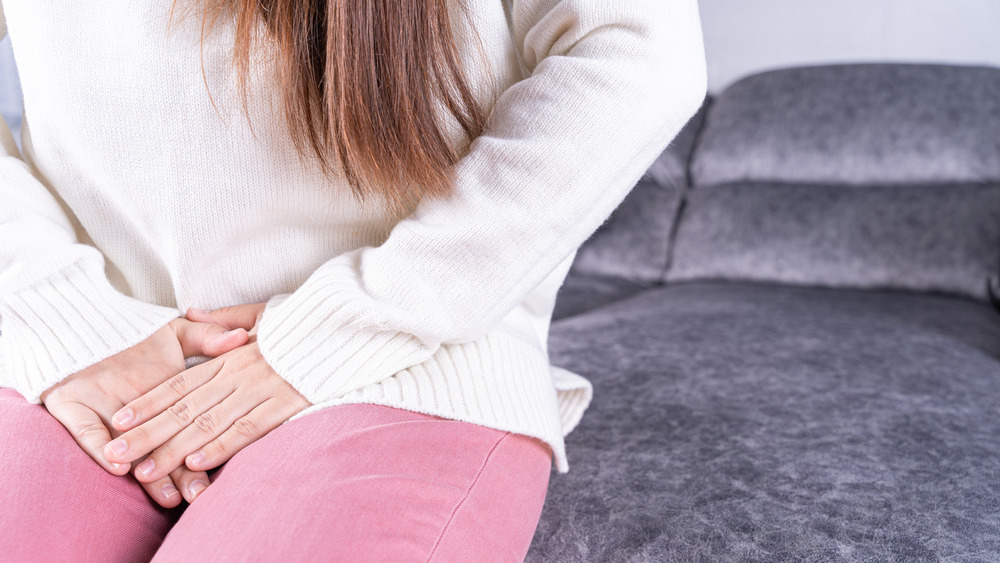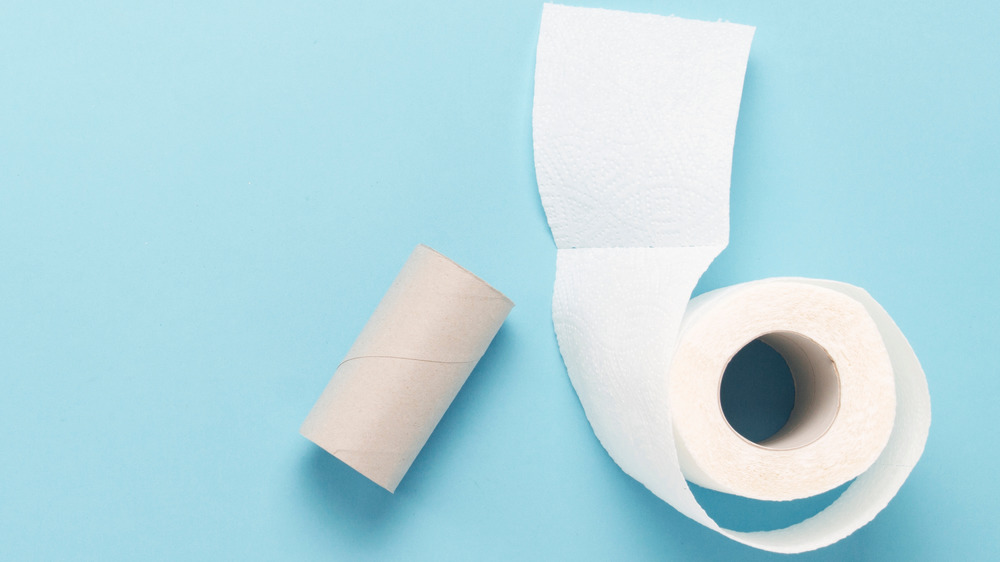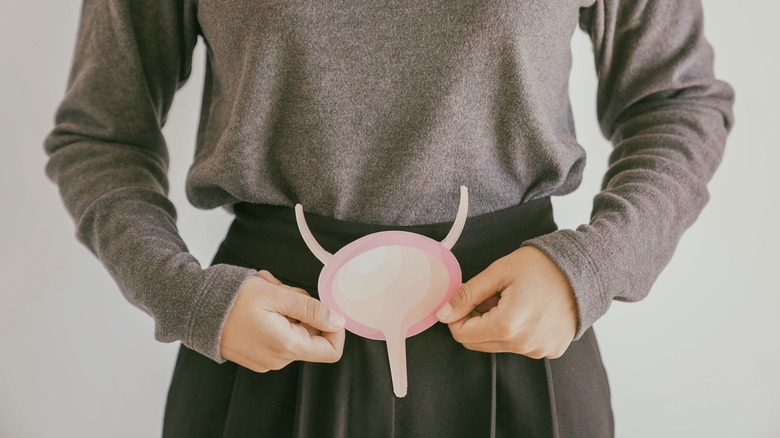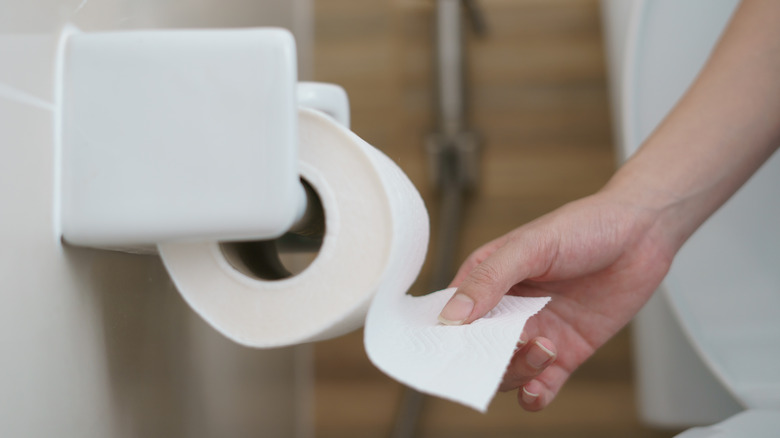Why Holding In Your Pee Is Riskier Than You Think
Although road trip vacations can be fun, it's not always the most comfortable form of travel. Cramped leg muscles, boredom, and the endless stretches of highway are not everyone's idea of a luxurious getaway. Even worse, is that feeling of panic that sets in when you've been driving for hours and there's no rest stop in sight. You're then forced to hold in your pee until the next gas station. But getting in the habit of regularly holding in your urine can pose some potential health risks.
The average person urinates around six to seven times a day (via Bladder & Bowel Community). Being so busy, we don't always realize our need to pee. That's because our bladders have a rather large capacity to hold liquid by as much as two cups before we feel that sudden urge "to go" (via Piedmont Health). Our urinary system rids our bodies of liquid waste after we've used up the nutrients and energy from the food we ingest (via the University of Rochester Medical Center). Preventing this bodily function can put strain on our bladder.
Infection, bladder tears, and accidents can result from holding in your pee
Because urine contains bacteria, holding our pee for long periods of time allows that bacteria to accumulate and remain in our bodies longer than it's supposed to (via Healthline). As a result, this increases the chances of contracting a urinary tract infection (UTI).
In very rare cases, news reports have also been made of people's bladders exploding after excessively long periods of holding in their urine. In a case reported by the New York Post, a man's bladder tore after not relieving himself for a total of 18 hours when he fell asleep after a night of heavy drinking.
Perhaps a more overlooked health risk is the emotional stress on young students unable to use the bathroom throughout the school day (via Sharp). Without regular bathroom breaks, public accidents can occur.
Of course, sometimes we have no choice but to hold in our pee if we don't have access to a nearby restroom. Every so often is generally not cause for concern, but paying attention to when our bodies are telling us to relieve ourselves, keeps our body functioning as it should.
Other damaging effects of holding your bladder
Along with UTIs and public accidents, there may be other negative outcomes of not going to the bathroom when your body is signaling for you to go.
For instance, holding in your urine may have a harmful effect on the kidneys. Your kidneys play a substantial role in urination by filtering blood, removing waste, and creating urine before the urine travels from the kidneys to the bladder, as illustrated by the National Institute of Diabetes and Digestive and Kidney Diseases. Because the kidneys are part of the urinary tract and there is a direct connection between the kidneys and bladder, it might not be all that surprising that the kidneys could be negatively impacted by the inability to urinate when the bladder is full. Dr. Rebecca Smith, a family medicine specialist, told Sharp Health News that holding in urine could damage the kidneys by contributing to swelling and potentially causing an infection. The infection can spread to the bloodstream in some cases, which can result in serious consequences. Moreover, kidney stones can sometimes be caused by holding in urine. They are also commonly caused by drinking too little water (per Kauvery Hospital).
In addition, holding in your pee can be painful even after finally urinating because your bladder has been constricted for so long, according to Tye Medical. For these reasons and more, it may not be worth it to hold your bladder for unusual periods of time.
How often should you urinate?
Knowing the harmful effects of holding in your urine, you might ask yourself how often you should be relieving yourself. On a typical day, the bladder fills up within 9–10 hours and can hold approximately 400–600 milliliters of urine, according to Insider. As reported by the Cleveland Clinic, the average person will usually relieve their bladder seven times from morning to night, but urination frequency varies anywhere between four times and 10 times a day depending on the individual.
There are a number of factors that influence someone's frequency of visiting the restroom, including their age and what medications they take. Fluid levels in your system also determine how quickly your bladder will fill up. If you're the type to carry around a gallon of water throughout the day to stay extra hydrated, your kidneys will produce more urine and your bladder may fill up more quickly than someone who drinks fewer fluids. How fast your bladder fills up also depends on what you drink, as urologist Dr. Petar Bajic explained to Cleveland Clinic. You may notice more frequent visits to the bathroom when drinking drinks with a diuretic effect like alcohol and caffeinated beverages.
Your body will signal to you when it's time to urinate by the physical sensations you feel when you have to go. The next time you're thinking of holding your urine for a long period of time, you may want to reconsider and take a trip to the nearest bathroom.




